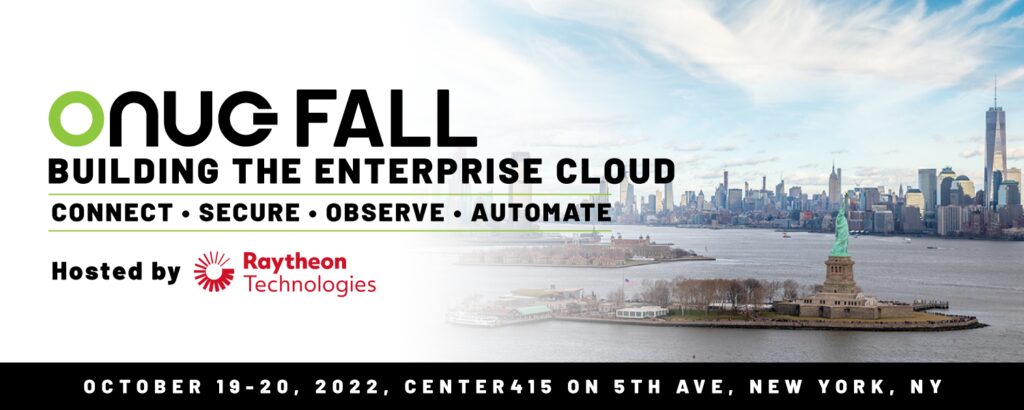
Addressing Industry Challenges around Vulnerability Management
In today’s extremely fast-paced world of continuous and persistent cyber threats by mature cyber-criminal organizations and state-sponsored entities, the topic of Vulnerability Management is frequently top of mind not just within CISO organizations, but up to and including Boards of Directors. As enterprises seek to accelerate their Vulnerability Management capabilities and maturity, they encounter significant roadblocks to making progress both internally and externally.
From an external market perspective, the landscape covering Vulnerability, Threat and Exposure identification and disposition is highly fragmented. Whether consolidation and a clear market winner is in sight remains to be seen.
From an internal view, the challenge remains of efficiently managing long and fragmented toolchains that enterprises have assimilated over time – let alone making sense of the numerous tools in the realm of “identify/detect/protect/prevent,” including software scanning, software supply chain, infrastructure scanning, baseline security configuration, IAM/PAM exposures, and over-privilege management.
As dashboard fatigue and conflicting views of prioritizing Vulnerabilities, Threats and Exposures have contributed to inertia in the space, security executives need to rethink how they provide centralized governance and a consistent set of objectives over fragmented domains that moves from IT Risk to Business context aware risk management.
Please join our panel discussion with Michael Clark, Alex Moss, Chris Zanelli, and Richard Julian to hear about their views on end-to-end Vulnerability Management and actionable strategies to avoid common pitfalls.
Michael is a veteran technologist with over 30 years’ experience in large enterprise computing. He began his career as a network and server engineer at Bausch & Lomb in the early days of distributed computing before moving on to Fidelity Investments and progressively larger systems management roles.
He finished up his time at Fidelity in Enterprise Architecture, where he focused on various platform infrastructure initiatives, including leading the effort to develop a unified compute platform strategy for the firm. Michael has spent the last decade engaged in an array of global professional services activities, working with private-equity firms and startups in healthcare data management and network security.
As a Core Organizer for the annual DevOpsDays Boston conference since 2017, Michael also co-founded “Boston DevOps Network, Inc,” a non-profit aimed at promoting DevOps learning and community-building in the Greater Boston area. Since 2015, he has worked with what is now the ONUG Cloud Native Security Working Group, where he is currently co-Chair with Forrest Bennett of FedEx. In 2019, Michael worked with Nick Lippis to launch ONUG’s first set of conference tracks focused on DevOps practices.
Today, he continues to consult on Cloud infrastructure and security projects and recently launched a new podcast series: “The Wages of Cybercrime.”
Chris has worked across multiple tier 1 global banks to establish maturity in Continuous Risk Assurance, DevSecOps capabilities, Risk Assessment Automation, and practical implementations of Zero Trust principles at scale. He joins us as a speaker for his 3rd ONUG event as a hands-on practitioner and evangelist in mature practices in the IT Risk Automation and Analytics space.
Richard Julian is a principal consultant in cloud and Kubernetes security, primarily focused on security engineering automation and incident response preparation.
Related events
-

Cradlepoint Proof of Concept: Adding Zero Trust in 1-2-3
October 25, 2023, 11:15 am ETFall 2023View Event -

Microland Proof of Concept: Achieving Flawless Performance of Your Network
October 24, 2023, 3:30 pm ETFall 2023View Event -

Nutanix Proof of Concept: Ransomware Resiliency Beyond Recovery
October 25, 2023, 11:45 am ETFall 2023View Event -

BlueCat Networks Proof of Concept: Unleashing the Power of Multi-cloud DNS: Building Resilient and High-Performing Modern Infrastructures
October 24, 2023, 1:50 pm ETFall 2023View Event -

Cisco Proof of Concept: Cisco Multicloud Defense – Elevate Your Cloud Network Security
October 25, 2023, 12:45 pm ETFall 2023View Event -

Navigating Transformational Changes in the Quantum and AI Era
October 25, 2023, 11:15 am ETFall 2023View Event -

NetOne Systems Proof of Concept: Governing the New Technologies like ChatGPT from a Financial/Security Perspective Using PaC in a Hybrid-cloud Environment
October 24, 2023, 10:40 am ETFall 2023View Event -

ONUG Collaborative Birds-of-a-Feather: Network Orchestration & Automation
October 25, 2023, 1:05 pm ETFall 2023View Event -

ONUG Collaborative Birds-of-a-Feather: Policy As Code
October 25, 2023, 11:55 am ETFall 2023View Event -

ONUG Collaborative Birds-of-a-Feather: Zero Trust
October 25, 2023, 11:35 am ETFall 2023View Event -

ONUG Collaborative Birds-of-a-Feather: One Consistent Secure Data Plane Framework
October 25, 2023, 11:15 am ETFall 2023View Event -

Securing Your Multicloud Future with Cisco – Cisco Main Stage Keynote
October 25, 2023, 10:25 am ETFall 2023View Event -

A New Golden Age for Infrastructure: Addressing Security and Control in the Age of AI and Multicloud – Nutanix Main Stage Keynote
October 25, 2023, 10:45 am ETFall 2023View Event -

Private 5G Industry Analyst Roundtable and Audience Q&A
October 24, 2023, 4:45 pm ETFall 2023View Event -

Spotlight on Oceus: 5G Private Cellular for Mission-Critical Environments
October 24, 2023, 2:35 pm ETFall 2023View Event -

Keynote: Private 5G Networks: Challenges, Opportunities & New Ways to Think
October 24, 2023, 1:20 pm ETFall 2023View Event -

Aviatrix Proof of Concept: Exploring Policy-as-Code Based Multicloud Security
October 24, 2023, 2:45 pm ETFall 2023View Event -

Nokia Proof of Concept: Networks that Speak Your Language: ChatGPT Integration
October 24, 2023, 10:55 am ETFall 2023View Event -

Elisity Proof of Concept: Redefining Microsegmentation: Elisity’s Identity based Approach to Cybersecurity
October 24, 2023, 4:10 pm ETFall 2023View Event -

F5 Proof of Concept: Seamless Hybrid, Multi Cloud Network Fabric with F5 Distributed Cloud
October 24, 2023, 4:20 pm ETFall 2023View Event -

Tenable Proof of Concept: Cyber Exposure Management: 5 Critical Pillars to Quantify and Reign in Cyber Risk
October 24, 2023, 3:25 pm ETFall 2023View Event -

Gluware Proof of Concept: Automate a Cisco TrustSec Network Using Gluware
October 24, 2023, 2:15 pm ETFall 2023View Event -

Alkira Proof of Concept: Connecting China – Standardization without Compromise
October 24, 2023, 4:05 pm ETFall 2023View Event -

Quantea Proof of Concept: Accurately Assessing the Impact of Data Breaches to Minimize Compliance Fines and Penalties
October 24, 2023, 3:40 pm ETFall 2023View Event -

Routing Security as Supply Chain Security: Threats and Opportunities
October 25, 2023, 1:15 pm ETFall 2023View Event -

Bias Towards Building with Deployable Vulnerability Layers: An Approach to Container Security
October 24, 2023, 1:45 pm ETFall 2023View Event -

Itron and ISG on the Journey to a Cloud-Centric WAN – Sponsored by Apcela
October 24, 2023, 2:45 pm ETFall 2023View Event -

The Rise of the Business Internet – Sponsored by Graphiant
October 24, 2023, 10:40 am ETFall 2023View Event -

Network to Code Proof of Concept: From Data to Decisions: Mastering Device Lifecycle with Nautobot
October 24, 2023, 10:55 am ETFall 2023View Event -

Apcela Proof of Concept: Tapping the Power of Open Access to Unleash Your Network
October 24, 2023, 1:35 pm ETFall 2023View Event -

Zscaler Proof of Concept: From Complex Routable WANs to Seamless Zero Trust Connectivity
October 24, 2023, 3:45 pm ETFall 2023View Event -

Kivera Proof of Concept: Preventive Guardrails to Enable Cloud Native Consumption
October 24, 2023, 3:10 pm ETFall 2023View Event -

IP Fabric Proof of Concept: Manage Your Network, Not Your Network Devices
October 24, 2023, 1:30 pm ETFall 2023View Event -

Dell Technologies Proof of Concept: Dell Enterprise SONiC – 3rd Party Container Mgmt
October 24, 2023, 3:15 pm ETFall 2023View Event -

NetBox Labs Proof of Concept: Network Automation Success Relies on a Network Source of Truth
October 24, 2023, 1:15 pm ETFall 2023View Event -

Graphiant Proof of Concept: Leverage the Power of Jumbo Frames to Accelerate Your Cloud Workloads
October 24, 2023, 2:05 pm ETFall 2023View Event -

World Wide Technology Proof of Concept: WWT’s Security Jam CTF Event
October 24, 2023, 1:45 pm ETFall 2023View Event -

Asimily Proof of Concept: How to Build an Incident Response Program
October 24, 2023, 3:55 pm ETFall 2023View Event -

Infinidat Proof of Concept: AUTOMATION with SnapSync
October 24, 2023, 10:40 am ETFall 2023View Event -

CloudQuery Proof of Concept: Infrastructure Asset Inventory and Automated Multi-Cloud Compliance with CloudQuery
October 24, 2023, 12:45 pm ETFall 2023View Event -

Keynote: Dynamic Edge Segmentation: Insights into GSK’s Hyperconnected Smart Manufacturing
October 24, 2023, 9:05 am ETFall 2023View Event -

Fortinet Proof of Concept: Fortinet Cloud Secure: Dynamic Cloud Security PoC
October 24, 2023, 2:00 pm ETFall 2023View Event -

Broadcom Proof of Concept: Prove Your Innocence 90% Faster with End-to-End Active Network Testing
October 24, 2023, 1:15 pm ETFall 2023View Event -

Riverbed Proof of Concept: Harnessing the Power of Unified Observability: Actionable Insights and Intelligent Automation
October 24, 2023, 2:35 pm ETFall 2023View Event -

AutoCloud Proof of Concept: Automating Your Automation
October 24, 2023, 2:50 pm ETFall 2023View Event -

Selector AI Proof of Concept: Enhanced Observability and Correlation for Next Generation Networks with Selector AI
October 25, 2023, 1:15 pm ETFall 2023View Event -

Qrypt Proof of Concept: Quantum-Secure Multi-Cloud Deployments
October 25, 2023, 12:00 pm ETFall 2023View Event -

Software Bill of Material: A Three Step Plan for Maximum Effectiveness
October 25, 2023, 11:45 am ETFall 2023View Event -

Keynote – NaaS: The Evolution from Private Routed WANs to “The Network Is The Cloud”
October 24, 2023, 9:55 am ETFall 2023View Event -

Keynote: The Need for Closely Integrated Collaboration between Networking and Cyber Security Teams: A GSK Case Study
October 25, 2023, 11:45 am ETFall 2023View Event -

Revolutionizing B2B Connectivity: Building a NaaS Backbone for Customer, Partner & Supplier Engagement
October 24, 2023, 2:15 pm ETFall 2023View Event -

Unlocking the Power of Network-as-a-Service (NaaS): Use Cases and Deployment Options
October 24, 2023, 12:45 pm ETFall 2023View Event -

Winning Use Cases for Private 5G – Sponsored by Verizon
October 24, 2023, 1:50 pm ETFall 2023View Event -

Welcome to ONUG Fall 2023 Pre-game Day 2: Enterprise Cloud: Connect, Secure, Automate & Control
October 25, 2023, 8:30 am ETFall 2023View Event -

Welcome to ONUG Fall 2023 Pre-game: Enterprise Cloud: Connect, Secure, Automate & Control
October 24, 2023, 8:00 am ETFall 2023View Event -

ONUG Conference Day 1 Wrap Up and Networking Event
October 24, 2023, 5:30 pm ETFall 2023View Event -

NaaS Working Group Update: “What is NaaS? What is Its Value and Potential? What You Need to Know Now”
October 25, 2023, 1:15 pm ETFall 2023View Event -

Cloud Native Security Working Group Update: A Practitioner’s Guide to Zero Trust Security
October 24, 2023, 1:15 pm ETFall 2023View Event -

Policy as Code Working Group Update: Exploring Policy-as-Code Use Cases
October 25, 2023, 11:15 am ETFall 2023View Event -

Keynote: How to Drive Modernization and Redesign for Agility and Risk Reduction
October 25, 2023, 9:40 am ETFall 2023View Event -

Keynote: Exploring Generative AI & Large Language Models: Maturity, Policy, and Enterprise Implementation
October 25, 2023, 9:00 am ETFall 2023View Event -

Demystifying Kubernetes Bill of Materials (KBOM): A Crucial Asset for Enterprise Cybersecurity
October 24, 2023, 4:45 pm ETFall 2023View Event -

Cloud Network Design Patterns: Bridging the Industry Gap and Optimizing Business Outcomes
October 24, 2023, 4:45 pm ETFall 2023View Event -

ACG Working Group Update: Report on the Outcome of the Multi-Cloud Cybersecurity Space Jam
October 25, 2023, 12:45 pm ETFall 2023View Event -

Hyperautomation Working Group Update: The Age of Hyperautomation: Redefining Enterprise Efficiency
October 24, 2023, 4:00 pm ETFall 2023View Event -

Addressing Industry Challenges around Vulnerability Management
October 24, 2023, 10:15 am ETFall 2023View Event -

Full-Stack Observability: Building Integrated Solutions for Network and Security Operational Landscapes
October 24, 2023, 3:15 pm ETFall 2023View Event -

Securing Any Application on Any Cloud – Fortinet Main Stage Keynote
October 24, 2023, 12:15 pm ETFall 2023View Event -

Improve Cloud Cybersecurity Resiliency and Lower Cloud Networking Costs – Aviatrix Main Stage Keynote
October 24, 2023, 11:55 am ETFall 2023View Event -

Learn How To Expand Visibility Beyond the Network Edge and Triage Faster – Broadcom Main Stage Keynote
October 24, 2023, 11:35 am ETFall 2023View Event -

An Insider’s Look at Automation Trends and Best Practices in Enterprise Networking – Gluware Main Stage Keynote
October 24, 2023, 11:15 am ETFall 2023View Event -

ONUG Keynote – The Convergence of Network & Security in Cloud Infrastructure: Advancing Efficiency and Trust through AI
October 24, 2023, 8:35 am ETFall 2023View Event






